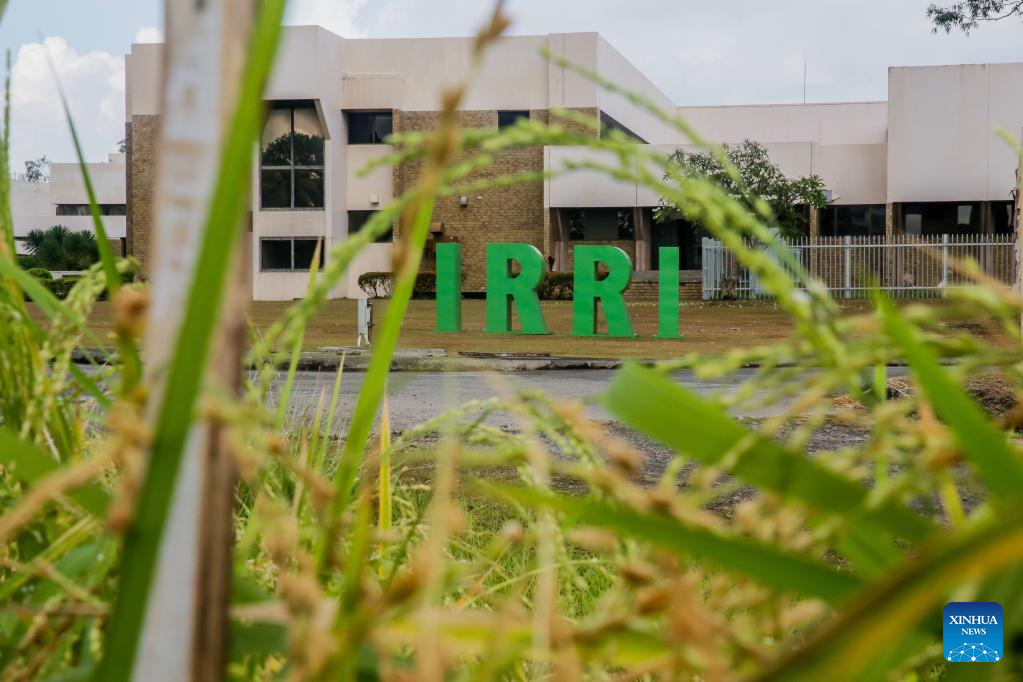
The International Rice Research Institute (IRRI) is pictured in Laguna Province, the Philippines on May 16, 2023. (Xinhua/Rouelle Umali)
by Xinhua writers Liu Kai, Yan Jie
MANILA, May 22 (Xinhua) -- Amid rising concerns about global food security, the legacy of Chinese agronomist Yuan Longping, also known as the Father of Hybrid Rice, continues at the International Rice Research Institute (IRRI) in the Philippines.
Yuan's hybrid rice was first introduced on the international stage at IRRI, which is located at the foot of the hills and inactive volcano in Laguna province, about 60 kilometers south of the Philippine capital Manila, even before his invention revolutionized global hunger, lifting billions of people out of poverty.
Jauhar Ali, a hybrid rice breeder at IRRI, is one of the rice scientists inspired by the Chinese agronomist who died on May 22, 2021.
One of Ali's photos on Facebook shows him smiling brightly in the middle of a rice field, celebrating Yuan's birthday in Changsha, central China's Hunan Province, when he was invited as an IRRI expert to an international conference on rice research held in Changsha.
"That's a memorable, touching moment," said Ali, who had known Yuan since the late 1980s when the Chinese scientist went to India, Ali's birth country, to support local rice research.
Indeed, Yuan's story with IRRI, a leading research organization dedicated to reducing poverty and hunger through rice science, dates back to the 1970s.
Yuan's pioneering research on hybrid rice began in 1964. After nine years of painstaking research and intensive testing, his team successfully cultivated the world's first high-yield hybrid rice strain in 1973.
In 1979, he attended an international rice research conference held by IRRI in the Philippines, where he debuted his research on hybrid rice to the world.
Three years later, when participating in another meeting of IRRI, Yuan was reputed as the "Father of Hybrid Rice" by his peers worldwide.
Ali treasures a digital archive of selected papers from that conference in 1979, among which Yuan's co-authored paper "Hybrid Rice Breeding in China" is well presented.
"So Professor Yuan Longping came and presented this to the world. Eventually, everyone started. This spark ignited a fire across the entire world and people all started working on hybrid rice," Ali told Xinhua in an interview.
Over four decades, hybrid rice technology has been promoted in more than 60 countries and regions, with millions of hectares of farmland growing hybrid rice, feeding billions of people on the planet.
"With the hybrid rice, you can see at least not only the production of more food, but at the same time, you save on the input cost side," said Hans Raj Bhardwaj, research director and head of the rice breeding innovations platform at IRRI.
According to IRRI, rice is the world's most important staple food for some 4 billion people. Rice farming is deeply associated with poverty, with about 900 million of the world's poor depending on rice as producers or consumers.
However, rice farming is now threatened by climate change, including higher temperatures, more frequent droughts, flooding, and rising sea levels. IRRI warns that reduced global rice production may endanger food security and hamper low-income consumers and producers emerging out of poverty.
"One way to mitigate that challenge is to develop varieties of the plants, which can tolerate the stress, but can still produce adequate yields," said Bhardwaj, adding much of the research today is "focused on some of those stressed rates, whether it could be droughts, heat, or floods."
The headquarters of IRRI, founded in 1960, is part of a 190-hectare property consisting of experimental rice fields, laboratories, screen houses, glass houses, and phytotron, among others.
Ali, who started working at IRRI in the early 2000s, is head of a program developing extreme-weather-tolerated rice varieties. He attributed his career motivation to the inspiration of Yuan, whom he described as "a down-to-earth person" and a "very kind-hearted, true gentleman."
"Yuan is not only the 'Father of Hybrid Rice', but also the father or grandfather of all rice researchers," said Ali.
"All credit goes to Dr. Yuan Longping. And we must all feel so grateful for his invention, his drive, and the efforts he put behind promoting and developing this technology," said Bhardwaj.
"It certainly helped with food security, reducing hunger and malnutrition. So this is one of the most significant or important technologies which has a large impact on food production and food security," he added. ■
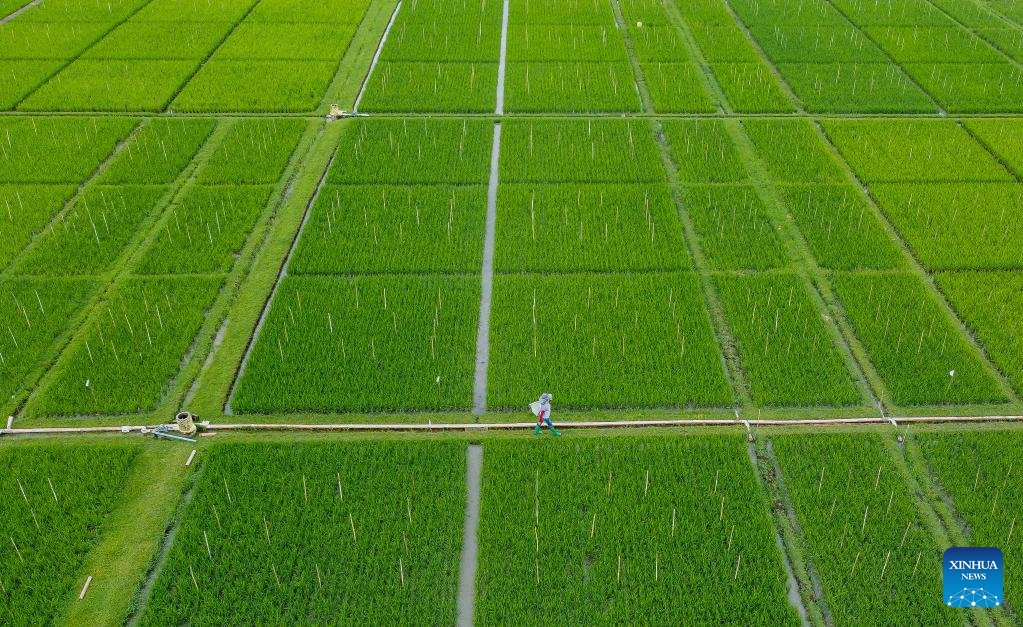
This aerial photo taken on May 16, 2023 shows a farmer walking in a rice field at the International Rice Research Institute (IRRI) in Laguna Province, the Philippines. (Xinhua/Rouelle Umali)
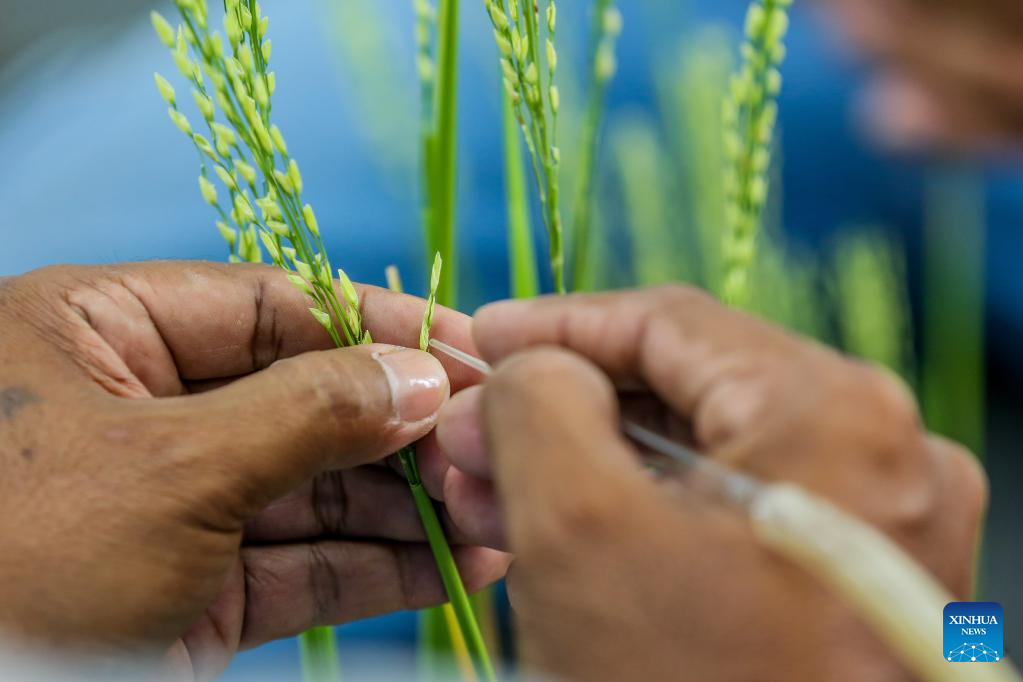
A farmer crossbreeds rice stalks at the International Rice Research Institute (IRRI) in Laguna Province, the Philippines on May 16, 2023. (Xinhua/Rouelle Umali)
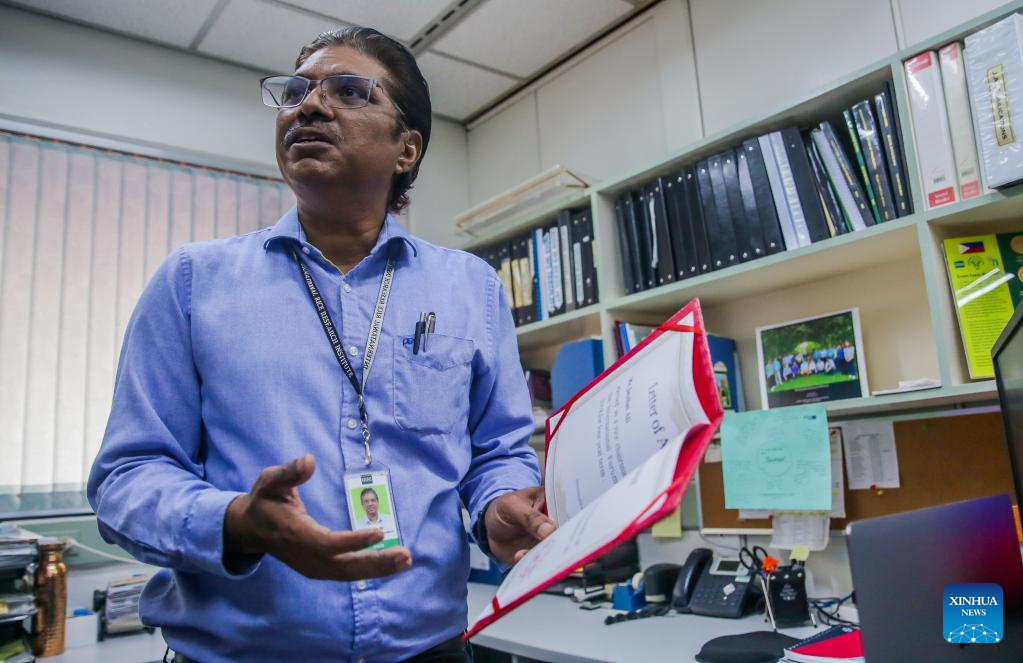
Jauhar Ali, a hybrid rice breeder at the International Rice Research Institute (IRRI), speaks during an interview with Xinhua in his office in Laguna Province, the Philippines on May 16, 2023. (Xinhua/Rouelle Umali)
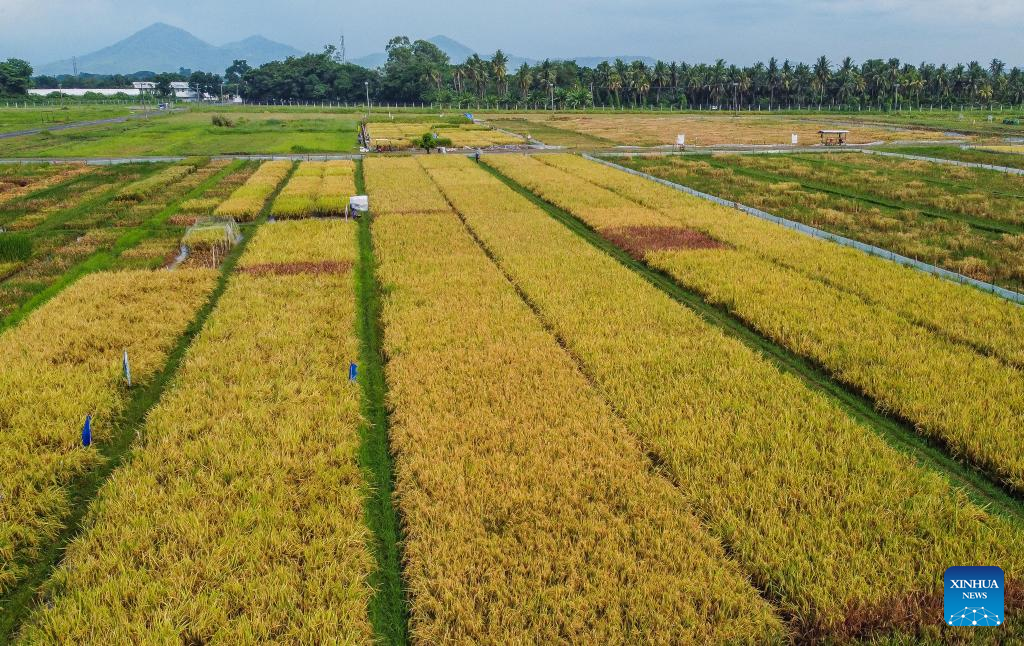
This aerial photo taken on May 16, 2023 shows a rice field at the International Rice Research Institute (IRRI) in Laguna Province, the Philippines. (Xinhua/Rouelle Umali)
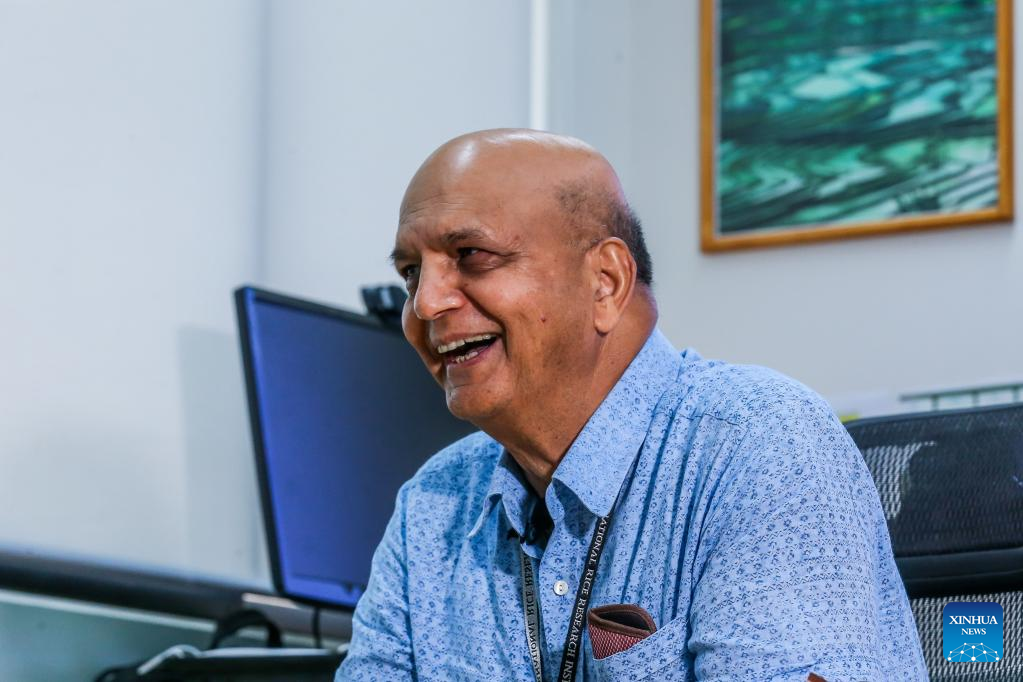
Hans Raj Bhardwaj, research director and head of the rice breeding innovations platform at the International Rice Research Institute (IRRI), speaks during an interview with Xinhua in his office in Laguna Province, the Philippines on May 16, 2023. (Xinhua/Rouelle Umali)



